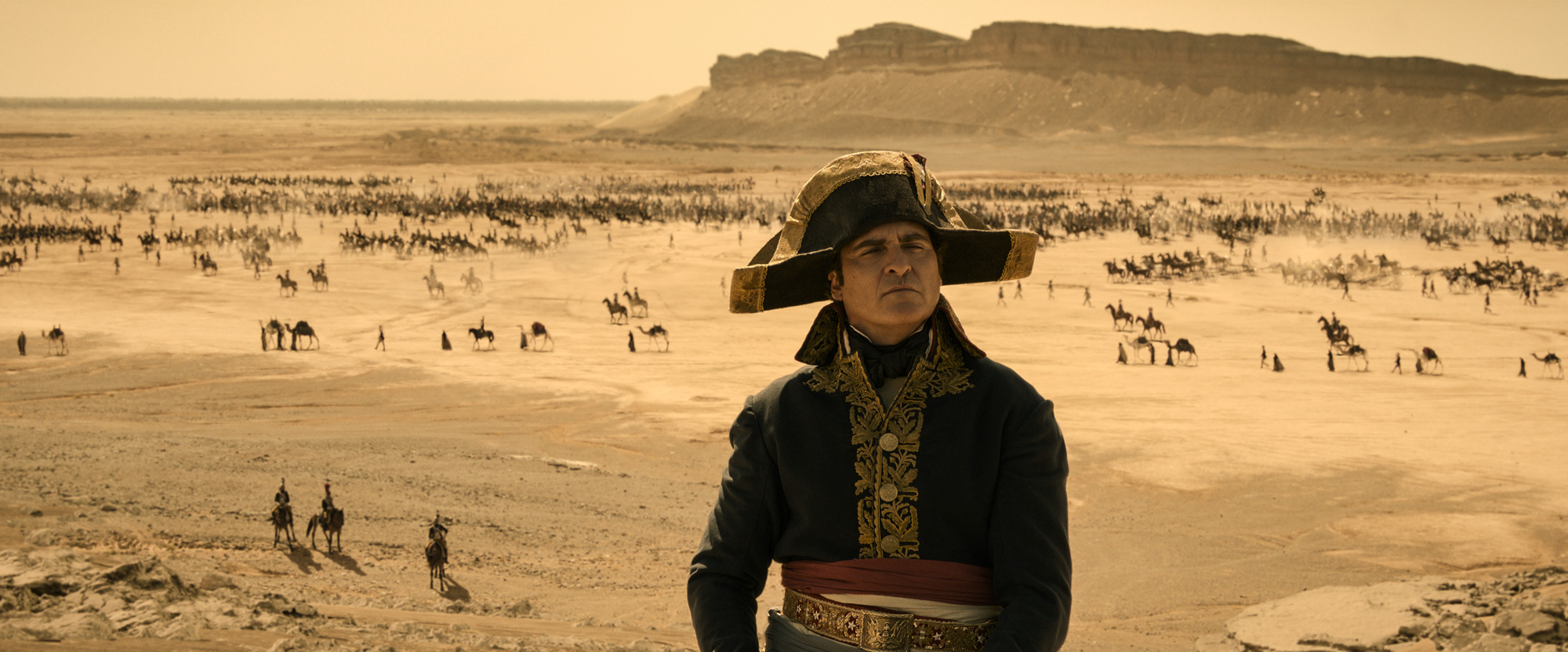
Warning: This article contains spoilers.
The beheading of Marie Antoinette — courtesy of the guillotine — is accompanied by frenzied revolutionist chants backed by a dramatic French score in the opening moments of Ridley Scott’s Napoleon.
This historical epic stars Joaquin Phoenix as France’s storied general, and follows Bonaparte’s rise to power, wartime accomplishments and troubled domestic life. Scott juxtaposes the power Napoleon wields on the battlefield and the power others wield over him off of it.
Joséphine de Beauharnais is played with poise by Vanessa Kirby, offering perhaps an even greater presence than the film’s titular character. Her infidelity plucks Napoleon back home from Egypt, bleeding glory from the grandiose scale of the emperor’s victories. De Beauharnais, in a sense, becomes a conduit for diving into the unexplored aspects of Napoleon's psyche. She is more than a housewife, taking charge as a true empress of France and of the narrative arc of the film.
Phoenix presents Napoleon as both stoic and vulnerable, bringing to life a version of the character unaddressed in history textbooks. The Napoleon we meet on the battlefield is a strategic genius but the man at home is something else entirely. He’s at times a vindictive emperor, at other turns a victimized pawn belied by two distinct spheres of his life. He’s one half of a passionate royal couple, but never a whole person unless he’s conquering another European power or manipulating allies.
The combination of the two performances results in a unique film, as much a tale of Napoleon’s marriage as it is an exploration of his political legacy. We take in the immensity of his military genius and his conquests just as we do the betrayals and inevitable exile to the island of St. Helena that befalls Bonaparte towards the end of his life.
Scott is more concerned with cinematic flavor than historical accuracy (“get a life,” is his response to critics), injecting stunningly-choreographed battle scenes and the right dose of melodrama into “Napoleon.”
With the screen time we do get on the battlefield, Scott does well to immerse audiences into the moments that made Napoleon into a legend by staging massive fight sequences that fill the entirety of the frame. These scenes are bursting with spectacle and gore, an alluring painting over of the imagined borders of warfare.
As a historical drama, Napoleon fails by struggling to weave the thrill of battle into the romance at the core of the film. As a character study, Napoleon thrives upon Scott’s specificity, and is deliberate in its scope and ambitions, giving us a distinct glimpse into his person beyond the battlefield. What would’ve been a medley of unbalanced war scenes is elevated by the discernible complexity of the film’s subject, an incomplete but daring portrayal into the man in the bicorn hat who conquered half a million square miles of Europe.
Photo courtesy of Sony Pictures/Apple Original Films